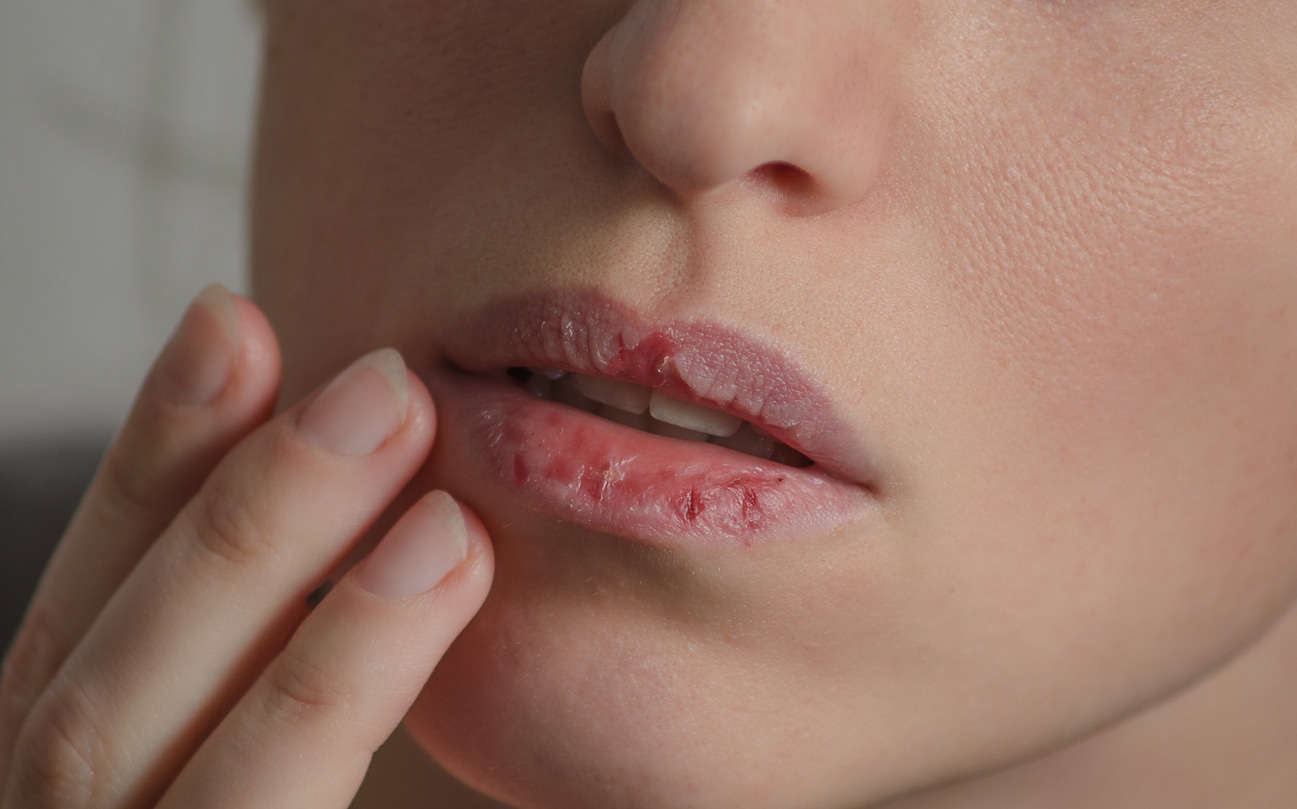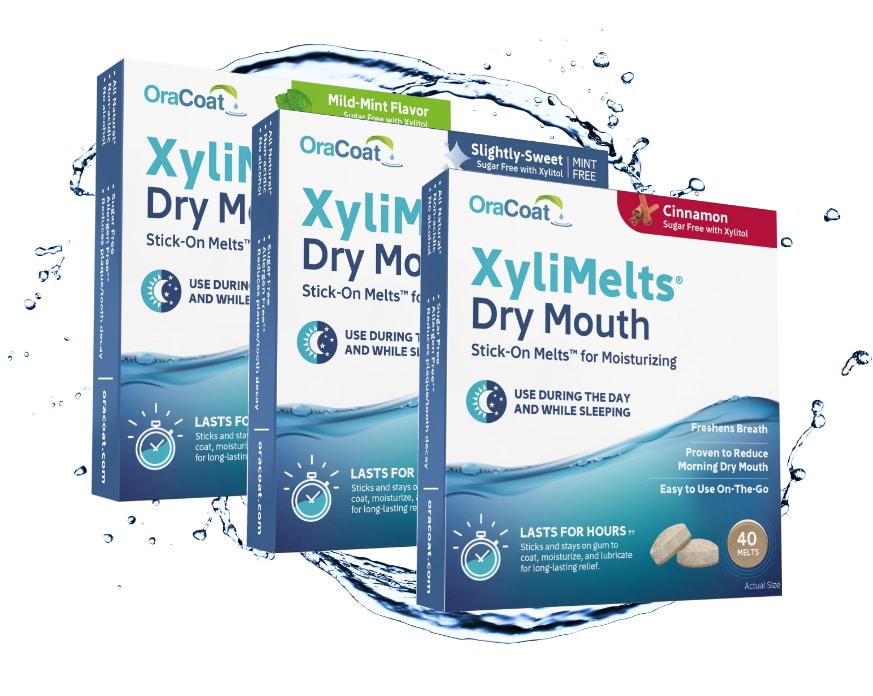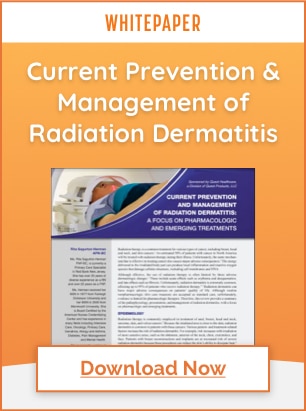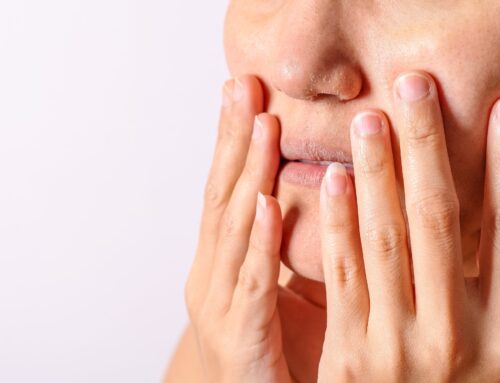
Treating Xerostomia from Diabetes, Cancer & Sjogren’s Syndrome
If left untreated, Xerostomia can lead to serious health problems for patients including infection, difficulty chewing and swallowing food, tooth decay, and disturbed sleep.
Many patients aren’t aware that dry mouth is becoming a problem until saliva production drops to an intolerable level. It’s important to include symptoms of dry mouth when examining a patient’s overall health and wellness.
Common ways to keep the mouth moist and healthy include:
- Keep saliva production at a healthy level
- Adequate hydration (8 to 10 glasses of water per day)
- Consistent tooth care with daily flossing and brushing at least twice per day
- Avoid nicotine products such as smoking or chewing tobacco
- Reduce or eliminate alcohol intake
- Use of a humidifier
Certain diseases have dry mouth as a common symptom, including Diabetes, Cancer, and Sjogren’s Syndrome. For patients with these diagnoses, relieving dry mouth is a vital aspect of their treatment and recovery.
Xerostomia Educational In-Services
Quest Healthcare offers free Educational In-Services on the topic of Xerostomia including: Xerostomia (Dry Mouth with CPAP Use), Xerostomia (Dry Mouth) And Sjögren’s Syndrome and Xerostomia (Dry Mouth) In Elderly.
Request an In-Service for your healthcare team today and lunch is on us!
Xerostomia and Diabetes
Patients can dismiss Xerostomia as a normal side effect, but it should never be ignored as it is often an indicator that something is wrong.
Xerostomia is a symptom of high blood sugar, and can also be a cause of high blood sugar when it leads to tooth decay. Tooth decay caused by dry mouth can lead to higher blood sugar levels as the body unsuccessfully attempts to ward off infection.
To avoid dry mouth related complications, it’s important for patients to maintain a healthy mouth environment, ideally a target A1c of 7% or lower1.
Acute or Chronic Xerostomia in Diabetic Patients
Xerostomia that appears suddenly can be an indicator of a spike in blood sugar levels. Persistent dry mouth is a sign that blood sugar levels are regularly high. Chronically high blood sugar levels put patients at risk for diabetic complications.
Xerostomia symptoms for an acute blood sugar spike can often be relieved by the patient’s prescribed dose of insulin and drinking water every hour to hydrate. For blood sugar levels over 300 mg/dL patients should test their ketones as well.
For persistent Xerostomia not caused by diabetic ketoacidosis, medications, or a ketogenic diet, patients may need a new diabetes treatment plan. Nutrition and level of activity should be examined, and a medication change may be required.
While drinking more fluids may help relieve Xerostomia symptoms in the short term, typically it is not a long term solution as Xerostomia occurs again once the fluid intake is absorbed by the body. Products such as gum, mints, and mouthwash also tend to lose their effectiveness quickly. Saliva stimulation is needed to help ensure the dry mouth doesn’t return.

OraCoat® XyliMelts® help increase saliva production and reduce harmful bacteria in the mouth – even while sleeping – which leads to an improvement in overall oral health. Request samples for your facility here.
Dry Mouth and Cancer
Cancer patients often develop xerostomia as a side effect of chemo and radiation therapy.
Cancer treatments may weaken or even destroy salivary glands, causing reduced saliva production. In some cases, dry mouth will improve or disappear approximately two months after the completion of cancer treatment when the salivary glands regenerate.
To relieve dry mouth caused by radiation therapy patients can:
- Increase fluid intake for temporary relief
- Brush and floss teeth regularly to maintain good oral health
- Consume soft, moist foods (like soups, milkshakes, and pudding)
- Avoid smoking
- Avoid foods that can trigger mucositis, such as some fruit, nuts, shellfish, cinnamon, and chewing gum
- Use a slow-release saliva producing product like OraCoat® XyliMelts that moisturizes, soothes, and lubricates the mouth
Dry Mouth and Sjogren’s Syndrome
Sjogren’s Syndrome is an autoimmune disorder that destroys the glands that produce tears and saliva. It may accompany other immune system disorders, such as lupus and rheumatoid arthritis.
Dry mouth due to Sjogren’s Syndrome can cause dental decay and/or infection due to increased oral bacteria as well as oral yeast infections.
Symptoms of dry mouth associated with Sjogren’s Syndrome include:
- Dry mouth or lips
- Swollen salivary glands
- Burning and/or itching of the eyes
- Frequent thirst
- Sores in the mouth or tongue
- Problems speaking, tasting, chewing, or swallowing
- Persistent hoarseness or dry nasal passage
- Persistent dry cough
Lifestyle changes and home remedies for dry mouth due to Sjogren’s Syndrome can alleviate some of the symptoms. These include:
- Using a room vaporizer
- Breathing through the nose as much as possible
- Staying hydrated and avoiding diuretic and acidic fluids such as coffee, alcohol, soda, and sports drinks
- Avoiding spicy or hot foods
- Using a flavorless toothpaste
- Avoiding sugary foods and sweets
While these solutions can provide some relief, stimulating saliva production is a longer-term way to relieve symptoms of dry mouth. OraCoat® XyliMelts oral adhering discs slowly dissolve, releasing 550 mg of xylitol and oral lubricant, and can be used during the day and at night while sleeping.
About Xylimelts® for Xerostomia (Dry Mouth)
OraCoat® XyliMelts® are the only oral-adhering discs that stick to teeth or gums to help relieve persistent dry mouth. Use XyliMelts® during the day or while sleeping for temporary relief from frequent thirst, sticky dryness in the mouth and throat, and other unpleasant dry mouth symptoms.
Made with xylitol, a natural sweetener that helps stimulate saliva flow, XyliMelts® utilize adhering disc technology to slowly release 550 mg of xylitol, which is most effective when continuously released and lingers in the mouth, especially when used while sleeping when saliva flow is lowest. XyliMelts® last for hours, moisturizing and coating the mouth for optimal comfort. The mild mint flavor freshens breath and the xylitol may reduce the risk of tooth decay.
Request samples for your facility today.
Disclaimer: The material contained is for reference purposes only. Quest Healthcare, A Division of Quest Products, LLC, does not assume responsibility for patient care. Consult a physician prior to use. Copyright Quest Healthcare, A Division of Quest Products, LLC.
Sources:
1. Diabetes & Dry Mouth: Causes and Treatment Options | Diabetes Strong
2. Management of Oral Mucositis in Patients with Cancer (nih.gov)
3. https://www.mayoclinic.org/diseases-conditions/sjogrens-syndrome/symptoms-causes/syc-20353216
4. Oral Mucositis – What You Need to Know (drugs.com)
5. https://www.oracoat.com/dry-mouth-xerostomia-symptoms







